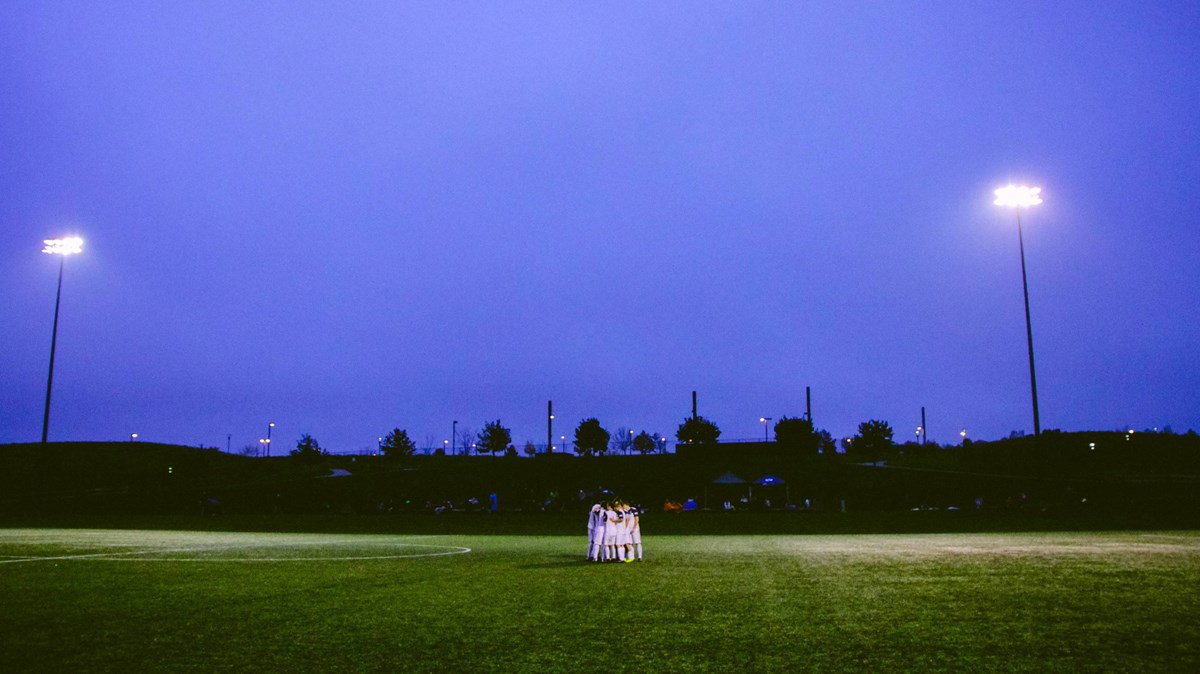Serving as the Bay Area director for the Fellowship of Christian Athletes (FCA), Rigo Lopez didn’t expect that his work would involve court depositions and early morning emails with lawyers. Or that he’d have to pray for and defend students whose teachers campaigned against their club and its convictions.
But Monday marks a long-awaited milestone in the Christian organization’s legal fight in California. FCA learned it can finally return to San Jose public schools—four years after losing its official recognition over its faith statement and a month after a significant First Amendment ruling in federal appeals court.
Following major religious liberty decisions at the Supreme Court, the FCA ruling offers a new precedent for free exercise protections. “It makes other cases much more likely to succeed,” according to Becket senior counsel Daniel Blomberg, part of the legal team for FCA.
FCA’s case was the latest in a string of lawsuits over campus access for Christian clubs. The Christian Legal Society at UC Hastings, the Chinese Student Christian Fellowship at the University of Iowa, and InterVarsity Christian Fellowship at Tufts, Vanderbilt, Wayne State, and Cal State have gone through similar fights.
After almost 20 years in operation in San Jose local schools, FCA was similarly denied approval as a student club in 2019, when it was declared in violation of district-wide nondiscrimination policies. A teacher at one school, Pioneer High, had campaigned against the club’s “anti-gay prerequisites,” since FCA’s faith statement for student leaders included a line about God instituting marriage between a man and a woman.
Following the pandemic, the San Jose school district officially adopted an “all comers” policy, which also barred faith statements: Approved clubs could not discriminate in membership or leadership. So FCA filed suit on First Amendment grounds, pointing out that other clubs hold their own requirements around identity or ideology without punishment.
Last month, the Ninth Circuit backed what many of these student organizations have been saying all along: that it’s unfair to subject people of faith to unequal treatment, whether or not the policies in question called out religious groups in particular.
“The Court’s 100+ page opinion overturned a major prior precedent and is a ringing endorsement of the [First Amendment] rights of students with implications well beyond high school campuses,” tweeted attorney Casey Mattox, vice president for legal and judicial strategy at Americans for Prosperity.
A lower court had previously sided with the San Jose school district, saying its policies did not target the Christian club and rejecting FCA’s plea for an injunction to meet as its case proceeded. The Ninth Circuit—the largest federal appeals court in the country—heard the case earlier this year and overruled the decision on September 13, citing the “merits of [the FCA’s] free exercise claims.”
“The District, rather than treating FCA like comparable secular student groups whose membership was limited based on criteria including sex, race, ethnicity, and gender identity, penalized it based on its religious beliefs,” the majority opinion said. “Because the Constitution prohibits such a double standard—even in the absence of any motive to do so—we reverse the district court’s denial of FCA’s motion for a preliminary injunction.”
Ed Whelan of the Ethics and Public Policy Center noted that “FCA had a very good draw,” with nine Republican appointees among the randomly selected judges for the “en banc” panel that reviewed the case on appeal. Ninth Circuit ruled 9–2, with both Democratic appointees dissenting.
In the majority opinion, judge Consuelo Callahan referenced 2021 Supreme Court decisions on behalf of a Catholic foster agency (Fulton v. City of Philadelphia) and Californians who wanted to worship at home during the pandemic (Tandon v. Newsom).
Previous rulings allowed for neutral, “generally applicable” laws that happened to restrict religious activities, under the Smith precedent. But justices ruling in these more recent cases clarified how even broad policies can unconstitutionally target religious expression when the government applies them selectively.
In Fulton, justices held that “the mere existence of government discretion is enough to render a policy not generally applicable.” In Tandon, treating “any comparable secular activity more favorably than religious exercise” kept a law from being “neutral and generally applicable.”
For the FCA case, the San Jose school district allowed exceptions for other clubs to restrict membership—like Senior Women or the South Asian Heritage Club—but didn’t allow the Christian group to hold faith requirements for its leaders.
“Time and time again, the label of ‘all comers’ has been slapped on policies that are anything but, in an effort to engage in viewpoint discrimination in a manner that might fool courts, but which certainly chills the expression of students in both high school and college,” wrote Robert Shibley, an attorney and senior fellow at The Foundation for Individual Rights and Expression, a free speech advocacy group.
The Ninth Circuit’s FCA decision “makes that harder to get away with, which can only benefit the individual rights of everyone at public colleges and high schools,” he said.
Blomberg said the students in the FCA case also showed a “remarkable” level of grace when faced with severe hostility in their school setting, where classmates protested FCA meetings with signs and formed a Satanic Temple Club to mock FCA after it lost its recognition as a student group.
The support of a national organization meant that FCA could undergo the legal fight and be ready to return; another Christian club who didn’t meet the district requirements no longer exists, he said.
“FCA is excited to be able to get back to serving our campuses,” Lopez said in a statement. “Our FCA teams have long enjoyed strong relationships with teachers and students in the past, and we are looking forward to that again.”




























![[Video] More – Aghogho » GospelHotspot](https://gospelhotspot.net/wp-content/uploads/2024/04/More-Aghogho.jpeg)
















